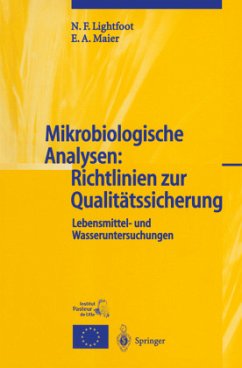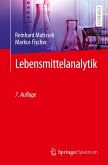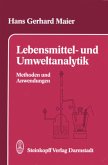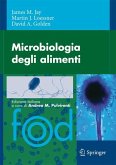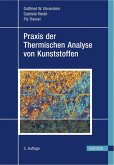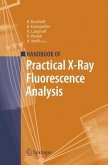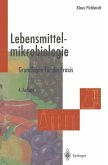This text explores the most recent advances in research on adaptations and responses to the physical environment among the major plant groups found in tropical ecosystems. Fundamental processes provide the organizational framework for the book. Its four main sections include: i) acquisition, transport and loss of water, ii) carbon acquisition and regulation of photosynthetic gas exchange, iii) nutrient acquisition and use, iv) energy balance and adaptation to temperature extremes.Concise but informative explanations of fundamental concepts at the beginning of each chapter allow those not familiar with the specialized terminology to grasp the nuances of each topic before becoming immersed in the more detailed analyses processes and case studies that follow. The book ends by suggesting that the bewildering plant species diversity in tropical ecosystems does not necessarily reflect an intractable range of physiological diversity.
Täglich werden in Europa tausende mikrobiologische Analysen durchgeführt, besonders zur Überwachung der Qualität von Lebensmitteln, Trinkwasser oder Badegewässern. Um Proben und Messergebnisse im gesamten europäischen Raum vergleichen und austauschen zu können, sind einheitliche Qualitätsstandards Voraussetzung. Diese wurden in verschiedenen EU-Projekten erarbeitet und unterstützt von der Europäischen Kommision in entsprechenden Richtlinien formuliert. Dabei wurde die EN 45001 zugrunde gelegt (nun ersetzt durch die Norm ISO/IEC 17025 "Allgemeine Anforderungen an die Kompetenz von Prüf- und Kalibrierlaboratorien"). Insbesonders gehören dazu: zuverlässige Referenzmaterialien, anerkannte Mess- und Auswertmethoden sowie validierte Abläufe von der Probennahme bis zur Dokumentation der Ergebnisse. Mit den nun auch in Deutsch vorliegenden Anleitungen kann jedes Untersuchungslabor ein Qualitätssicherungssystem implementieren. TOC:Anwendungsbereich und Zweck.- Umsetzung von Qualitätssicherungsprogrammen.- Personal, Organisation und Management.- Probenentnahme; Ausstattung.- Materialien.- Quantitative Methoden- und Verfahrensbewertung.- Analytische Qualitätskontrolle in der Mikrobiologie.- Handhabung der Ergebnisse und Berichterstattung.- Akkreditierung.- Anhang: Statistik für die Qualitätssicherung in der Lebensmittel- und Wassermikrobiologie.
Täglich werden in Europa tausende mikrobiologische Analysen durchgeführt, besonders zur Überwachung der Qualität von Lebensmitteln, Trinkwasser oder Badegewässern. Um Proben und Messergebnisse im gesamten europäischen Raum vergleichen und austauschen zu können, sind einheitliche Qualitätsstandards Voraussetzung. Diese wurden in verschiedenen EU-Projekten erarbeitet und unterstützt von der Europäischen Kommision in entsprechenden Richtlinien formuliert. Dabei wurde die EN 45001 zugrunde gelegt (nun ersetzt durch die Norm ISO/IEC 17025 "Allgemeine Anforderungen an die Kompetenz von Prüf- und Kalibrierlaboratorien"). Insbesonders gehören dazu: zuverlässige Referenzmaterialien, anerkannte Mess- und Auswertmethoden sowie validierte Abläufe von der Probennahme bis zur Dokumentation der Ergebnisse. Mit den nun auch in Deutsch vorliegenden Anleitungen kann jedes Untersuchungslabor ein Qualitätssicherungssystem implementieren. TOC:Anwendungsbereich und Zweck.- Umsetzung von Qualitätssicherungsprogrammen.- Personal, Organisation und Management.- Probenentnahme; Ausstattung.- Materialien.- Quantitative Methoden- und Verfahrensbewertung.- Analytische Qualitätskontrolle in der Mikrobiologie.- Handhabung der Ergebnisse und Berichterstattung.- Akkreditierung.- Anhang: Statistik für die Qualitätssicherung in der Lebensmittel- und Wassermikrobiologie.

